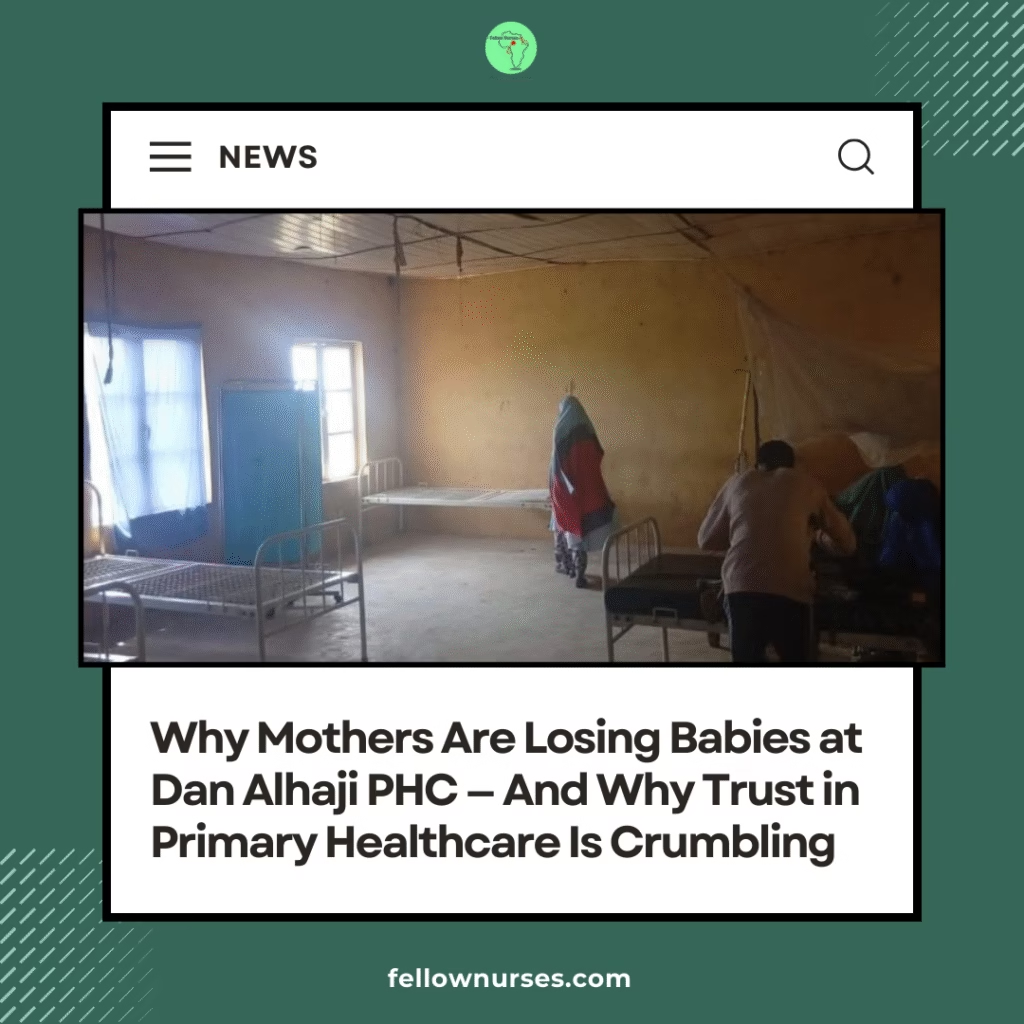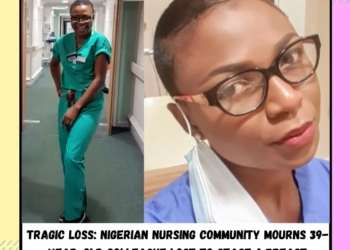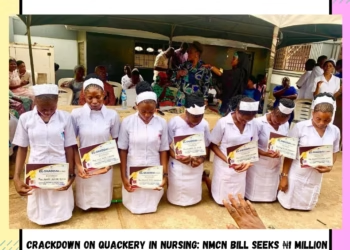In Kaduna State, the Dan Alhaji Primary Health Centre (PHC) should be a place of hope. Instead, it has become a place where grief echoes through the halls. For many mothers, it is the last stop in a long and painful journey through Nigeria’s fragile healthcare system.
One young mother, Fatima Abdulrashid, shared her story with Nigeria Health Watch. She recalled losing her first child after a caesarean section, followed by another tragedy she attributes to infection and delays in care. Her voice, heavy with grief, captures what too many women in rural communities endure: waiting too long, arriving too late, and leaving without their babies.
After a difficult pregnancy and an emergency caesarean section, Mardiya Abubakar’s newborn survived only a few days before dying in an incubator. These are not isolated stories—they are patterns of loss.
A Facility Under Pressure
Dan Alhaji PHC serves as a Basic Health Care Provision Fund (BHCPF) focal facility, yet still struggles with the basics. Community members describe empty pharmacies, delayed drug supplies, and unreliable equipment. Even when renovations are ongoing, mothers say what matters most—timely care, accessible medicines, and life-saving interventions—remains out of reach.
Healthcare workers confirm the strain. Midwives say that by the time most women arrive, they are already in critical condition. Some arrive after hours of bleeding at home; others are brought only when complications become life-threatening. Cultural barriers, financial struggles, and poor transport systems add layers of risk that no mother should have to face.
The Human Cost of Delays
A pharmacist at the centre explained that the supply chain for drugs is broken. Even after making requisitions, it can take one to two months before essential medicines arrive. For families, that gap is deadly. For health workers, it is demoralizing.
The result? Mothers and babies are dying from conditions that Nigeria already has the knowledge—and the resources—to prevent.

Rebuilding Trust, Saving Lives
The tragedy unfolding at Dan Alhaji PHC is not just about one community. It is a window into Nigeria’s wider PHC crisis. If rural centres cannot provide timely, reliable, and affordable care, then they cannot rebuild trust—or save lives.
Experts and frontline workers argue that four urgent changes are needed:
– Reliable emergency transport and referral systems for complicated cases
– Efficient drug supply chains to prevent deadly stockouts
– Expanded maternal health education for families and communities
– Stronger neonatal care training for frontline health workers
As one midwife put it: “Healthy mothers mean healthy communities. With the right support, we can stop losing babies to causes we know how to prevent.”
The question is not whether we know what to do—it is whether policymakers will act quickly enough to stop the next tragedy.










